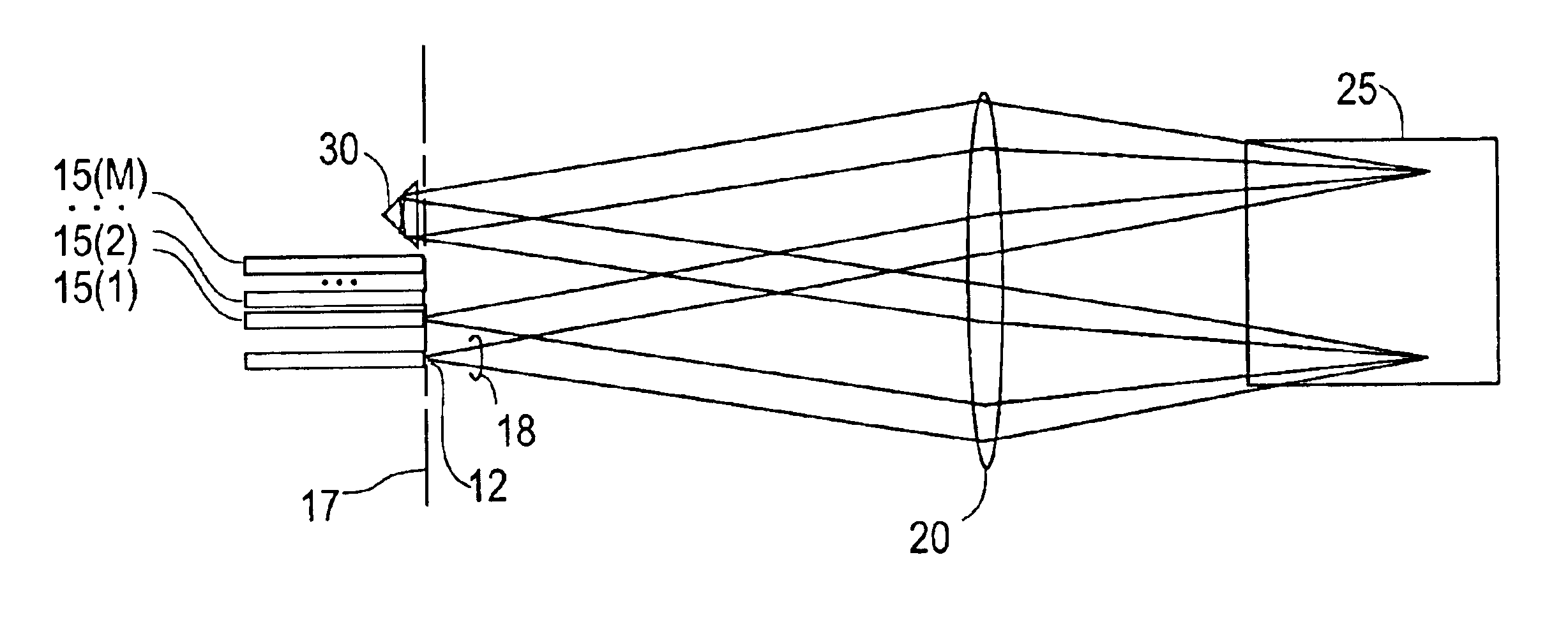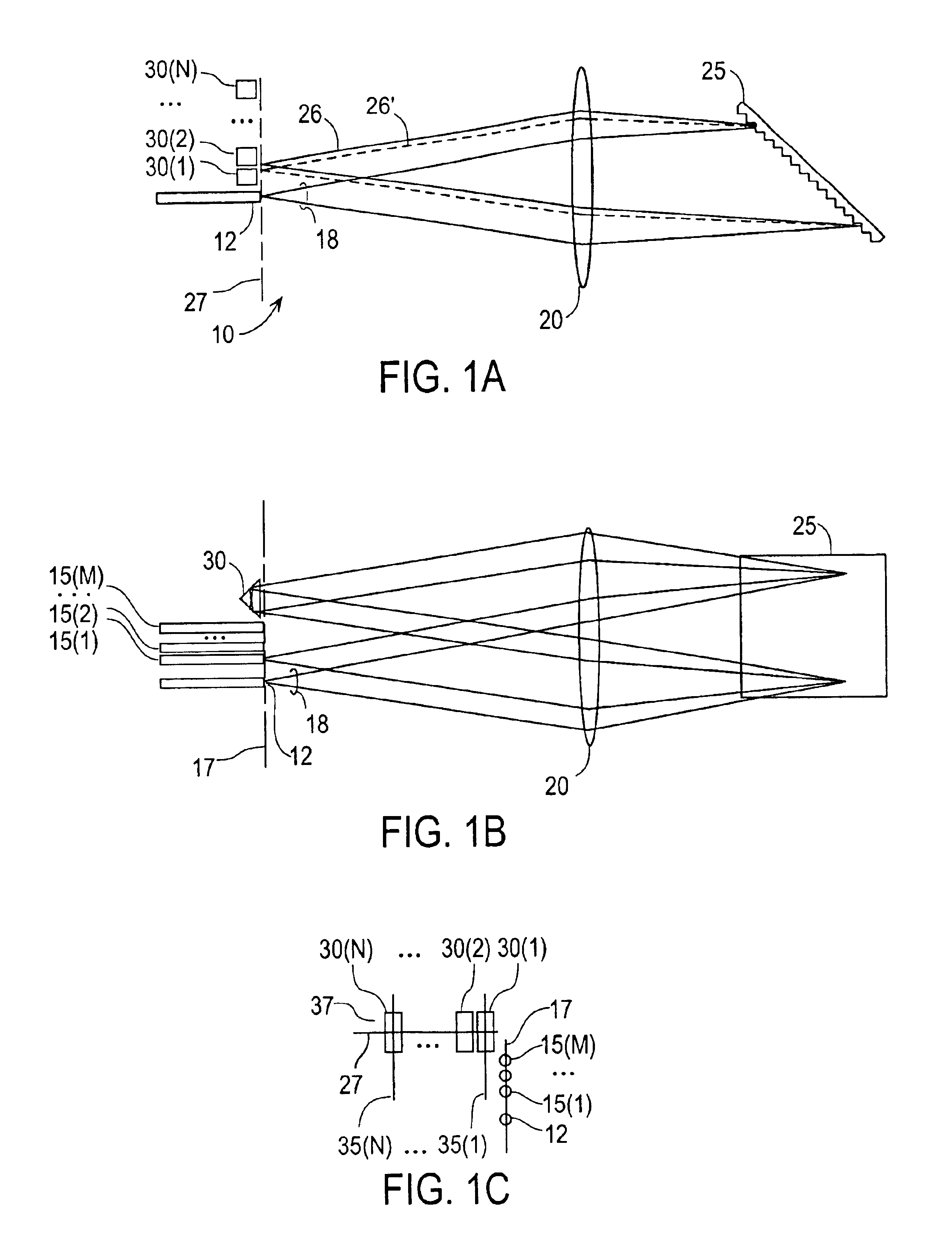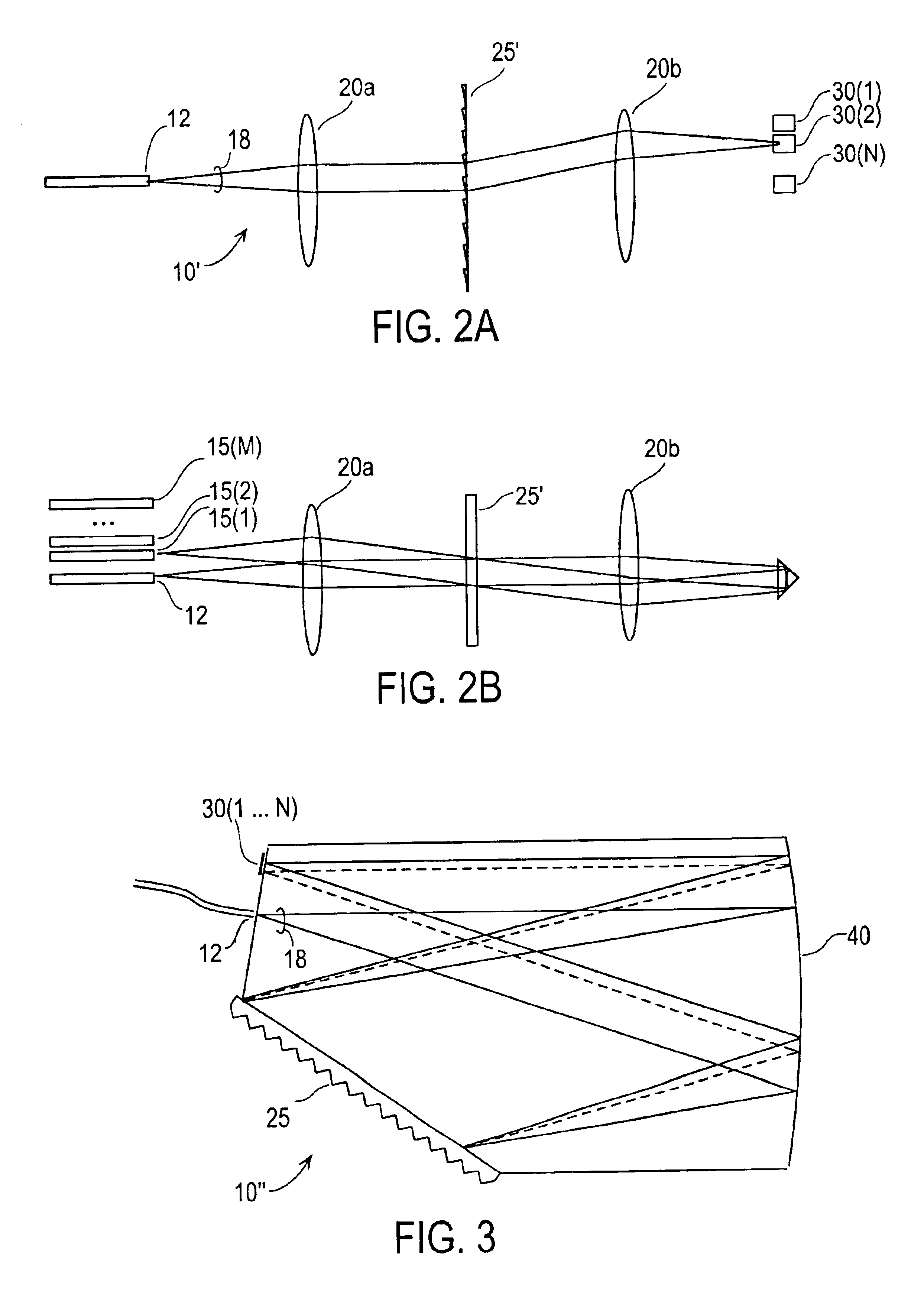Wavelength router
a router and wavelength technology, applied in multiplex communication, optical elements, instruments, etc., can solve the problems of complex compound process, difficult and expensive scaling of dwdm networks using sonet/sdh technology, and explosion of global bandwidth demand, so as to achieve flexible and effective routing of spectral bands
- Summary
- Abstract
- Description
- Claims
- Application Information
AI Technical Summary
Benefits of technology
Problems solved by technology
Method used
Image
Examples
Embodiment Construction
Introduction
The following description sets forth embodiments of an all-optical wavelength router according to the invention. Embodiments of the invention can be applied to network elements such as optical add-drop multiplexers (OADMs) and wavelength-selective cross-connects (WSXCs) to achieve the goals of optical networking systems.
The general functionality of the wavelength router is to accept light having a plurality of (say N) spectral bands at an input port, and selectively direct subsets of the spectral bands to desired ones of a plurality of (say M) output ports. In a specific implementation. N=80 and M=2 (i.e.. each of 80 wavelengths is selectively directed to either of two output ports). Most of the discussion will be with reference to dynamic (switching) embodiments where the routing mechanism includes one or more routing elements whose state can be dynamically changed in the field to effect switching. The invention also includes static embodiments in which the routing elem...
PUM
| Property | Measurement | Unit |
|---|---|---|
| differential path length | aaaaa | aaaaa |
| wavelength | aaaaa | aaaaa |
| wavelength | aaaaa | aaaaa |
Abstract
Description
Claims
Application Information
 Login to View More
Login to View More - R&D
- Intellectual Property
- Life Sciences
- Materials
- Tech Scout
- Unparalleled Data Quality
- Higher Quality Content
- 60% Fewer Hallucinations
Browse by: Latest US Patents, China's latest patents, Technical Efficacy Thesaurus, Application Domain, Technology Topic, Popular Technical Reports.
© 2025 PatSnap. All rights reserved.Legal|Privacy policy|Modern Slavery Act Transparency Statement|Sitemap|About US| Contact US: help@patsnap.com



